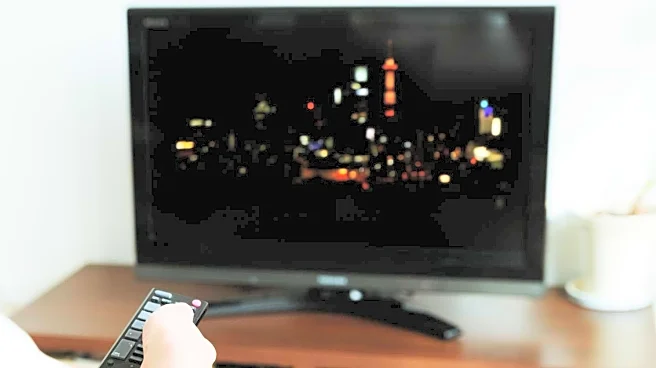What is the story about?
What's Happening?
Toyoake, a city in central Japan, has introduced new guidelines to limit phone and tablet use among its residents, particularly targeting leisure activities. The initiative, effective from October 1, aims to encourage healthier screen habits by recommending a maximum of two hours of daily screen time. The guidelines are part of a broader effort by Mayor Masafumi Koki to address concerns about the impact of excessive screen time on sleep and overall well-being. The city government has communicated these guidelines to elementary and junior high school students, emphasizing the importance of maintaining sufficient sleep. Despite criticism from local lawmaker Mariko Fujie, who argues that the measure infringes on personal freedoms, the guidelines have been approved by the city assembly. The initiative is largely symbolic, as there are no enforcement mechanisms or penalties for exceeding the recommended screen time.
Why It's Important?
The initiative by Toyoake City highlights a growing concern about the impact of screen time on health and well-being, particularly among young people. Excessive screen time has been linked to various negative outcomes, including disrupted sleep patterns, poorer academic performance, and diminished mental health. By promoting reduced screen time, Toyoake aims to foster healthier habits that could lead to improved sleep and overall quality of life. While the guidelines are not enforceable, they serve as a public health message encouraging residents to reflect on their screen usage. This approach could influence similar policies in other regions, as communities worldwide grapple with the challenges posed by digital technology.
What's Next?
The implementation of Toyoake's screen time guidelines may prompt discussions among other municipalities about adopting similar measures. As the city observes the impact of these guidelines, there may be further evaluations or adjustments based on feedback from residents and educators. The initiative could also inspire research into the effectiveness of such guidelines in improving health outcomes. Additionally, the ongoing debate about personal freedoms versus public health measures may continue, potentially influencing future policy decisions in Japan and beyond.
Beyond the Headlines
The Toyoake initiative raises broader questions about the balance between personal freedom and public health. It challenges the notion of individual autonomy in the digital age, where screen time is often seen as a personal choice. The guidelines also touch on cultural aspects, as they encourage family discussions about screen use, potentially strengthening family bonds and communication. Furthermore, the initiative may contribute to a shift in societal attitudes towards technology use, promoting mindfulness and intentionality in digital consumption.
















